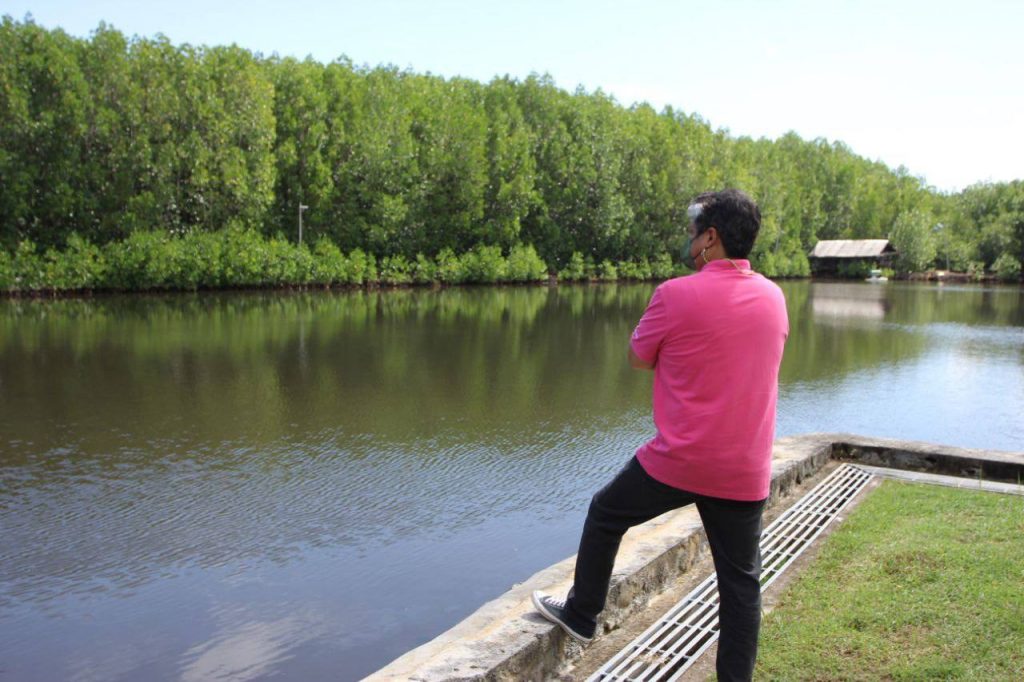News
Pangilinan defends vote on Rice Tariffication

MANILA – Vice presidential aspirant Senator Francis “Kiko” Pangilinan on Sunday defended his vote on the Rice Tariffication measure in the Senate, stressing that he abstained because he had reservations.
During the debate organized by the Commission on Elections (Comelec) at the Sofitel Philippine Plaza, Pangilinan got into a heated argument with former lawmaker Walden Bello who questioned the latter’s stand on Republic Act (RA) No. 11203 or the Rice Tariffication law (RTL) which puts Filipino rice farmers at a disadvantage as it encourages more rice imports.
The RTL, which was formally enacted in February 2019, imposes farmer protection tariffs on rice imports in lieu of quantitative restrictions to lower rice prices and ensure its stable supply to 100 million Filipino consumers.
Bello asked Pangilinan if he went to the washroom when senators were taking a vote on the measure, noting that he should have voted against the legislation if he was really an advocate of farmers.
Pangilinan, in response, said that he abstained because he had reservations in supporting the measure.
“I had reservations precisely in supporting the measure and that’s precisely why I abstained…And we moved to amend the law. In fact, it has been amended to now allow for cash assistance to be given [to] the rice farmers. And we will move again to amend it so that we will increase the allocation of the tariffs collected for direct support and assistance for our farmers and fisherfolk,” Pangilinan said.
Bello described Pangilinan’s decision to abstain as “crazy”, noting that he was in an impossible situation to defend.
Pangilinan said he respected Bello’s view but disagreed.
He explained that he pushed for the passage of the Sagip Saka Act, which compels local government units and different government agencies to purchase goods directly from farmers and fisherfolk cooperatives.
“That’s precisely why we pushed for that because we knew of the impact of the Rice Tariffication measure. So I beg to disagree with his view that we are crazy or we are not aware of the implications of the Rice Tariffication law,” Pangilinan said.
Bello insisted that Pangilinan “should have opposed it.”
But Pangilinan ended their exchange by saying that they should just “agree to disagree.”
Farmers’ advocate
When asked what issue or problem in society required a new policy or law that could be recommended to the president, Pangilinan spoke of his experience in agriculture.
“Ako ay sampung taon nang mahigit nagsasaka ng prutas at ng gulay sa Alfonso, Cavite. Naintindihan ko kahit paano ang dinadanas ng ating mga magsasaka at mangingisda (I have been a fruit and vegetable farmer in Alfonso, Cavite for over 10 years. I somehow understood what our farmers and fishermen were going through),” he said.
He said it was not right for elderly farmers to have been farming almost all of their lives only to remain buried in debt.
“Hindi ito makatarungan. Anong klaseng lipunan ang papayag na hayaan na lang na ‘yung mga nagpapakain sa atin, dapat retired na pero nagsasaka pa rin pero nagsasaka dahil wala silang kakainin kung hindi nila ituloy ‘yung pagsasaka dahil kapos sila (This is injustice. What kind of society allows the very people feeding them to keep on farming when they should be retired already but continue farming because if they stop they won’t have anything to eat, because they’re lacking funds)” Pangilinan said.
If elected vice president, he said he would focus on fully supporting farmers and fishermen which would, in turn, lead to a steady food supply and address hunger in the country.
“‘Pag ang tulong ay buo, dadami ang kanilang ani, dadami ang huli, dadami na rin ang supply ng pagkain sa ating mga merkado, bababa na ang presyo ng pagkain at mawawala na ang matinding gutom (If we give them full assistance, they will have more harvest and catch, we will have more supply of food in the market, we will bring down the prices of food, and we will eradicate hunger),” he said.
In his closing statement, Pangilinan said he would use his experience as a senator, former food security czar, and farmer to respond to poverty and hunger in the country worsened by the Covid-19 pandemic.
“Sa araw ng halalan sa Mayo, matapos ang mahabang kampanya, sa tulong ng ating mga kababayan at sa awa ng Diyos, sa vice presidential race, nawa’y the last man standing is a farmer (On election day in May, after a long campaign, with the help of our countrymen and the mercy of God, in the vice presidential race, may the last man standing be a farmer),” he said.





















